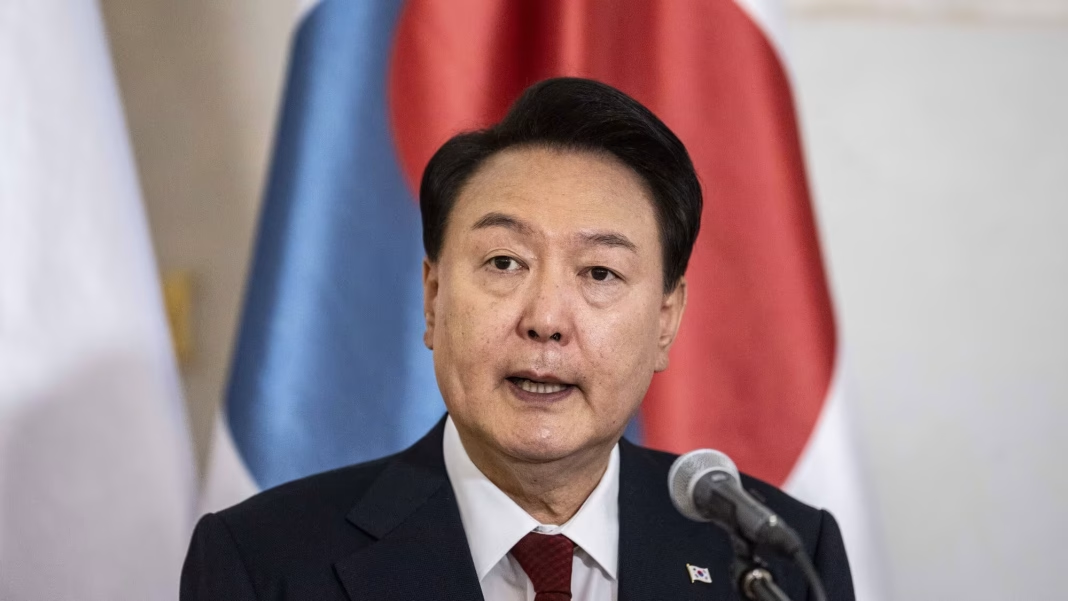South Korea’s political landscape is in turmoil after President Yoon Suk Yeol’s controversial declaration of martial law, which he attempted to impose to prevent criminal investigations into himself and his family. The declaration, the first of its kind in over four decades, was swiftly overturned by lawmakers in a dramatic session overnight, but it has sparked widespread alarm and political chaos.
Opposition lawmakers, who swiftly moved to file a motion to impeach Yoon, accuse him of violating the constitution and unlawfully declaring martial law to evade investigations into alleged illegal activities. The impeachment motion alleges that Yoon’s actions were unconstitutional and aimed at shielding himself and his family from imminent scrutiny.
The situation is now critical for Yoon, whose political future appears uncertain. The opposition holds a significant majority in the 300-member National Assembly, and with just a few defections from Yoon’s party, they could secure the two-thirds majority required for impeachment. Lawmakers could vote on the motion as early as Friday.
This political crisis is further exacerbated by the opposition’s filing of a complaint for “insurrection” against the president, his ministers, and top military and police officials. The charge, which could carry severe penalties, highlights the gravity of the situation. Even members of Yoon’s own ruling party have expressed outrage over the martial law declaration, calling it “tragic.”
Public anger also reached a boiling point, with thousands of protesters gathering outside Yoon’s office in Seoul, demanding his resignation. As a result of the political unrest, South Korea’s stock market also experienced a sharp decline, dropping more than one percent.
Martial Law Crisis: Key Events and Reactions
The drama began when President Yoon, in a late-night television address, cited North Korean threats and “anti-state forces” as justification for martial law. Over 280 military personnel, including troops flown in by helicopters, were stationed at parliament to enforce the declaration. However, around 190 lawmakers defied the military presence, entering parliament and voting to reject the martial law.
The South Korean constitution mandates that martial law be lifted if the majority of parliamentarians demand it, which led to Yoon retracting his order just six hours after its imposition. This reversal was met with celebrations from protesters who had gathered outside the National Assembly, celebrating the victory of restoring democratic procedures.
Senior officials, including Yoon’s defense minister, offered to resign, taking responsibility for the confusion and the national security concerns raised by the martial law order. Despite this, Yoon did not make any public appearances throughout the day, which only fueled further public outrage.
Political Fallout and Impeachment Efforts
The impeachment motion claims that Yoon’s actions were a direct violation of South Korea’s laws and constitution. It accuses him of acting with the illegal intent of evading investigations into alleged misconduct involving his family. In addition to the impeachment proceedings, opposition lawmakers have lodged a formal complaint of “insurrection” against Yoon and his administration, with the potential for severe penalties should the charges be proven.
Protests have erupted in several locations across Seoul, with demonstrators calling for Yoon’s immediate resignation. Many believe that his unconstitutional actions, particularly the martial law declaration, have irrevocably damaged his presidency and warrant immediate removal from office.
The International Response
Yoon’s declaration of martial law also drew criticism from South Korea’s international allies. The United States, which has nearly 30,000 troops stationed in South Korea to guard against the North Korean threat, expressed surprise at Yoon’s decision, as they had not been notified beforehand. Washington welcomed Yoon’s reversal, but the incident raised concerns about the stability of South Korea’s leadership during a time of heightened tensions with North Korea.
China, while refraining from direct comments on the internal political crisis, urged Seoul to ensure the safety of Chinese citizens in South Korea amid the escalating situation.
Discover more from LN247
Subscribe to get the latest posts sent to your email.


